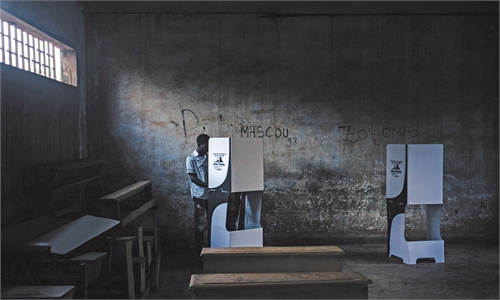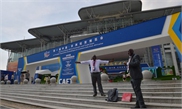FM kicks off Africa visit in new year for 31 straight years, showcasing the unshakable friendship
Golden period of ‘Promised Land’ expected in next decade
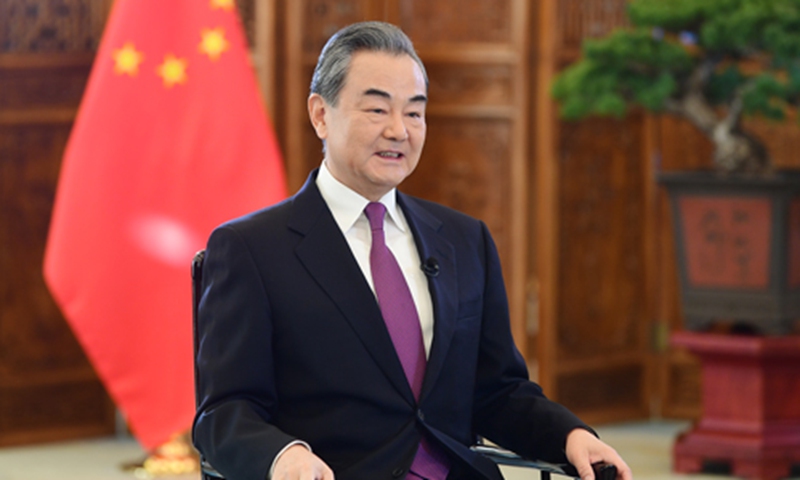
China's State Councilor and Foreign Minister Wang Yi
Following a tradition of China's foreign ministers making Africa their first visit of the new year, Chinese State Councilor and Foreign Minister Wang Yi kicked off his official visit to five African countries - Nigeria, the Democratic Republic of Congo, Tanzania, Botswana and Seychelles - on Monday, showcasing an unshakable China-Africa friendship in the post-COVID era under increasing world turbulence, and marking a new beginning in the next 10 years on the "Promised Land."
As the COVID-19 rages globally and Africa recently saw a new virus strain from its south, which scientists said will accelerate the spread of the coronavirus, Wang has remained committed to a diplomatic tradition to visit Africa, which observers believe truly demonstrates what the old Chinese saying "a friend in need is a friend indeed" means.
"Among all the powers, only Chinese foreign ministers have chosen Africa as their first destination at the beginning of the each year for 31 years, which shows the great importance China has attached to friendships with African countries," Liu Guijin, former Chinese Government's Special Representative for African Affairs, told the Global Times on Monday.
Ovigwe Eguegu, a Nigerian policy advisor at Beijing-based consultancy Development Reimagined and co-founder of think tank Afripolitika, told the Global Times that "there is no other nation in the world that has shown willingness for such consistent diplomatic engagement with Africa… It feeds the perception among Africans that China makes Africa a priority, the way other partners don't."
The year 2020 is of special significance in world history and in the history of China-Africa relations. Looking back to 2020, China-Africa cooperation under the pandemic has not stalled, and China-Africa relations have stood the test. Deepening the unity in fighting COVID-19 will be a major focus in Wang's visit to African counties, said analysts.
China and African countries worked together since the beginning of the COVID-19 pandemic. During the most difficult time in China's fight against the coronavirus in 2020, more than 50 African leaders sent their messages to support China. After COVID-19 broke out in Africa, China took the lead in helping Africa - China has so far sent medical teams to 15 countries to aid in their anti-virus fight, signed debt service suspension agreements with 12 African countries, and reduced or waived interest-free loans of 15 African nations due at the end of 2020.
He Wenping, a senior research fellow of the Institute of West-Asian and African Studies at the Chinese Academy of Social Sciences, said that the Forum on China-Africa Cooperation will also be another important topic. "In recent years, China and Africa have suffered a slide in economic cooperation affected by the decline of the price of raw materials in the international market. Wang's visits are expected to provide more initiatives to stabilize policies against the backdrop of increasing global turbulence."
Chinese Foreign Ministry spokesperson Hua Chunying told a routine press conference on Monday that Wang's visits demonstrate the long-standing friendship between China and Africa through weal and woe, and also represent China's firm and consistent choice to develop good ties with African countries.
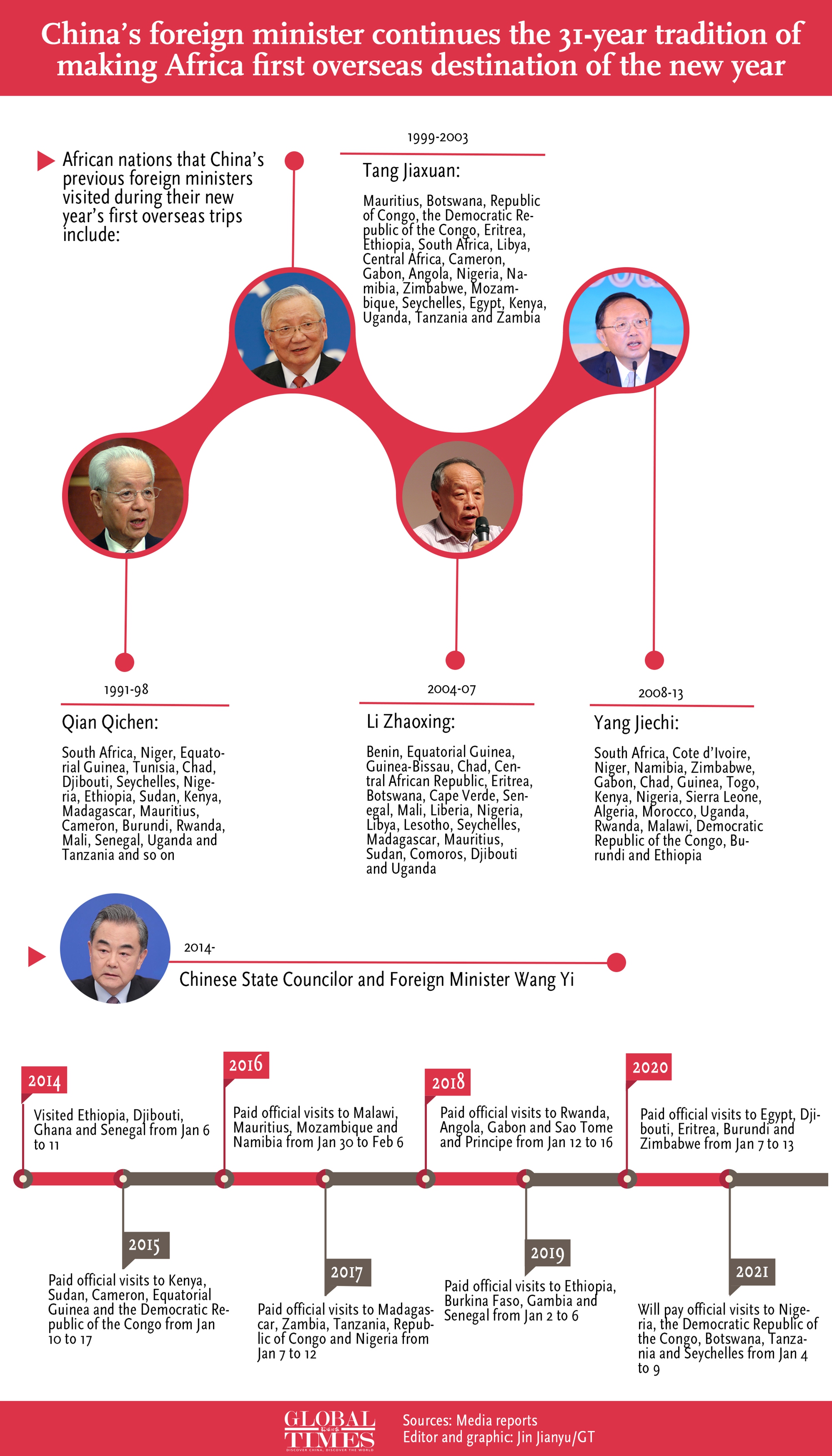
China's foreign minister continues the 31-year tradition of making Africa first overseas destination of the new year. Infographic: GT
Dismiss misunderstandingsBefore Wang's African tour, some media gave their understanding of the choices for the five countries.
Others suspected that the visit to Seychelles might be related to the reported military base on the Seychelles, although China had already denied such plan in early 2011.
Analysts warned some Western media and politicians to stop raking up the past to drive a wedge between China and Africa.
Liu Haifang, executive director of the Beijing-based Center for African Studies and associate professor at the School of International Studies of Peking University, believes the five countries are representatives of the five parts of the African continent, and selecting them is an extension of China's policies on cooperation with the continent. There is enough to do under the roadmap of FOCAC and BRI, rather than the narrow-minded seeking of military interests, repairing ties with selected countries, or snubbing others.
It is true that some Chinese companies' projects in Africa have faced obstacles with some being suspended or canceled, but the big picture is that China has built more than 1,000 projects for Africa without attaching any political conditions, including over 6,000 kilometers of railways and the same mileage of roads, nearly 20 ports and over 80 large-scale power plants, He Wenping said.
"The suspension of the Bagamoyo mega port and special economic zone does not mean the bilateral relations between China and Tanzania are encountering difficulties, but a result of the new president's iron-fisted rule, which has never targeted China only," Liu Haifang told the Global Times on Monday.
Different from opinions of some foreign media that hyped Wang's visits to Africa countries as "vaccine diplomacy," Eguegu praised the Chinese Foreign Minister's visits as "timely" after China's approval of its self-developed vaccines since "African countries are in dire need for vaccines in 2021. Otherwise, they would be marginalized globally in tourism, trade and economic recovery."
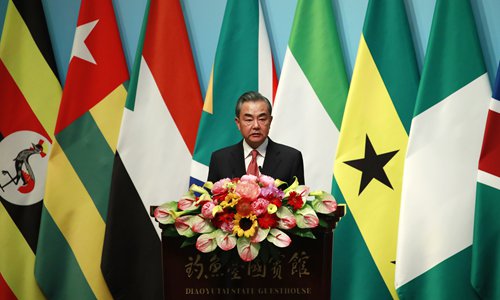
Chinese State Councilor and Foreign Minister Wang Yi delivers speech during the Beijing Summit of the Forum on China-Africa Cooperation at the Diaoyutai State Guesthouse in Beijing on June 25, 2019. Photo: IC
Land of hope
"Every time before a senior Chinese official comes to visit African countries, there will be some Western media judging us with bias and double standards. People in Africa enjoy and know the benefits brought about by China-Africa cooperation, and some small frictions would not alter the historical trend," said Liu Guijin.
Unlike the West, who gave no upbeat tones of Africa's development to serve their own purpose, China's attitude toward Africa is consistent and firm - China always sees Africa as the land of hope, promotes trade and people exchanges, and works with African people, Liu noted.
An improvement on food and living, a feeling of being respected and a change in mind-set - happiness is created by hard work - these are what China has brought to Africa over the past years in He's eyes through several field investigations.
To Liu Haifang, Africa is also a valuable drill ground for Chinese companies to get familiar with international rules and be more prepared for any fines or sanctions imposed by Western hegemony. "The mutual trust built over the past years offers a precious chance for Chinese companies to grow up fast."
"Through security cooperation, China could provide Africa solutions to knotty problems," Liu Haifang said, "The continent is a platform for China to showcase its responsibility as a big power."
Chinese analysts believe that there are great potentials for China and Africa to create more hope in the next decade. Apart from traditional cooperation, China could focus more on new infrastructure construction in Africa.
"The industrial parks, or special economic zones, could be a key engine to connect Africa with the world market," Liu Haifang said. Surveys to many Chinese companies in Africa made Liu believe that investing in industrialization may be a trend as manufacturing shoes and clothes and processing agriculture products have proven to be successful in many African countries.


